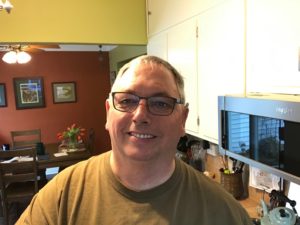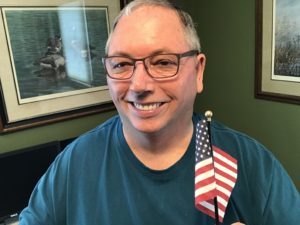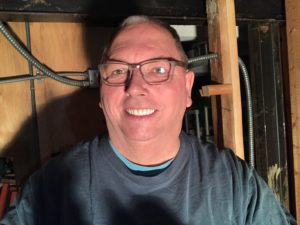
In a little restaurant just up the road from the University of Denver, the server nodded indicating it was my turn to decide. I pretended in my head to myself I was choosing between the pancakes with scrambled eggs or seafood eggs benedict special. I always go for the pancakes with scrambled eggs. Besides eggs benedict had runny yolks. I was about to respond with two pancakes and scrambled eggs, please. But then in a life-changing moment, I decided to seriously consider ordering the egg special instead of my usual scrambled eggs.
With my best inquisitive look, I asked the server: pancakes with scrambled eggs or egg special? Am I allergic to seafood? No, I love seafood. Pick the special. Poached eggs over a toasted English muffin topped with good-sized chunks of shrimp and crab meat covered by a delicious creamy hollandaise sauce. Boy golly, it was good.
Picking the usual is what made me the person I am. Why should I change? I almost never go wrong with the usual. The usual is almost never bad. Even to this day, most often, I plod along choosing the option that I usually choose, doing what I usually do. I wear what I usually wear. I eat what I usually eat. Linda is far more likely to pick a more interesting option than I am.
However, I am a bit changed. Once in a while, I intentionally try a different option than my norm. Even though I never had eggs benedict before, why not give them a try. The odds of me starving to death is low. I might even enjoy them.
It is not about just restaurant options. It is also about what I watch on TV, or the book I choose to read, or the podcast I listen to or the way I drive home or any one of hundreds of things where I have an option. Most of the time I choose my usual but once in a while I choose a different option.
The power of choosing other options is more than just enjoying something different. Certainly once in a while, I regret choosing the new thing I chose. It really is not about the option I choose or about whether it is better than my usual. Choosing a different option is about expanding my view of the world.
Maybe this will explain it better.
When winter comes to Minnesota and the ground is covered in new snow. When you cross a field you leave behind a path. If you continue day after day to follow that same path, the path gets worn down and safer. Even if it snows again, continuing to follow the same path over and over again is safer. However, by continuing to follow that path, as a practical matter, all other options for crossing that field become less of a real option. It is just so much easier to walk the beaten path than to trudge through high snow banks and deep old snow to head for a different option.
Always following your same old options is being in the same old rut. The longer you use the same path the deeper the rut becomes and the harder it is to follow other paths. Making a different decision once in a while keeps multiple paths open.
Certainly, other paths might not lead to better places. Salted caramel ice cream is pretty good, why would someone choose another option. However, it was choosing a different option which led me to like salted caramel ice cream in the first place. I still also enjoy mint chocolate chip. I also like a hot fudge sundae with a good vanilla ice cream.
By choosing other options once in a while I better understood the goal is not always to find the best. Making an occasional different choice helps me appreciate the nuance of life. I might prefer one flavor of ice cream over another but I like most flavors of ice cream. Most of the time, a different choice does not lead to a bad outcome. Usually, it leads to the discovery that there is a broad range of reasonable options. In a small way, it made my life more interesting.
When we stay in a rut, our view of the world never changes. Getting out of the rut, expanding your view of the world, even in small ways, of course, changes your view of the world. Go to a place you haven’t been to before. Talk to someone you don’t normally talk to, tell them you like the rainbow colors in their hair. Walk a different path. Drive the long way home. Eat at that place you wondered about. There are lots of ways to get out of the rut.
Getting out of the rut periodically does not make you a different person. It adds perspective and depth to the person you already are. It is about taking different paths across that snowy field. None of the paths are as safe as the one you usually take, however there it is, you discover most often they are quite safe enough.
Who knew I liked eggs benedict. I always avoided a runny yolk. Choices need to be made, once in a while make a different choice than you normally do. It will expand your horizons.
The closer you look the more you see.
Scaleandperception.com
 Going back to college as a retiree was all good until it was sorta not. I was hanging out with the cool kids, Wow look at me, the old person in a class of 20ish-year-olds. I am riding the bus, studying, reading, writing papers, joining in class discussions. It kinda made me feel special.
Going back to college as a retiree was all good until it was sorta not. I was hanging out with the cool kids, Wow look at me, the old person in a class of 20ish-year-olds. I am riding the bus, studying, reading, writing papers, joining in class discussions. It kinda made me feel special. 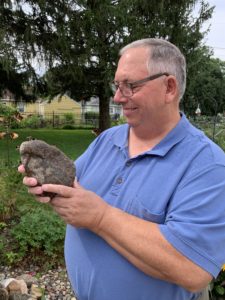
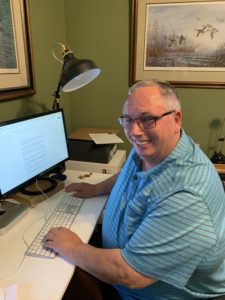
 We drove 3,400 miles over 11 days from St Paul MN to where the Mississippi River dumps into the Gulf of Mexico and back again. The Great River Road route is a designated zig-zag of mostly two-lane state or county roads going through rural mid-America. Very little freeway. Some town roads. Thirteen miles was a very narrow, harrowing one-lane gravel road.
We drove 3,400 miles over 11 days from St Paul MN to where the Mississippi River dumps into the Gulf of Mexico and back again. The Great River Road route is a designated zig-zag of mostly two-lane state or county roads going through rural mid-America. Very little freeway. Some town roads. Thirteen miles was a very narrow, harrowing one-lane gravel road. 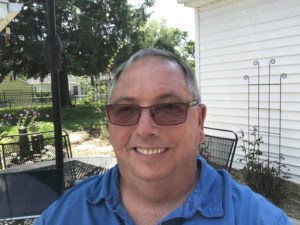 Several candidates for President are older than I am. I am about to be age 67. Experts on
Several candidates for President are older than I am. I am about to be age 67. Experts on 